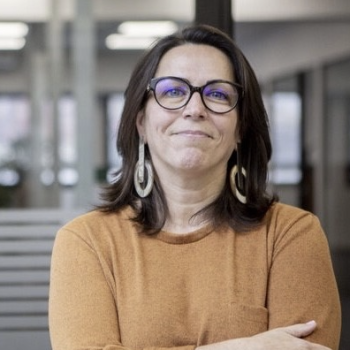Shaping policy, financing and efficiency in Colombia
The Resident Coordinator in Colombia, Mireia Villar Forner, has spearheaded a comprehensive agenda to strengthen UN leadership, redesign policy and programming solutions and make the UN more efficient to accelerate the 2030 Agenda in the country.
- In the context of the 2022 presidential elections, the Resident Coordinator led the UN Country Team to develop a joint position paper – “A Common Agenda for Colombia” – a vision for the country presented in a “Ted Talk” style address delivered by the Resident Coordinator to all the campaign teams. This joint vision facilitated the UN Country Team´s early engagement with the new government: during the handover process, the government consulted 13 UN agencies on a number of key priorities ranging from peace, drugs, food insecurity, education, and environmental and climate change challenges.
- Following the elections, the Resident Coordinator chaired the first Steering Committee of the UN Multi Partner Trust Fund for Peace with the new Government of Colombia. The Fund was created in 2016 and mobilized USD 200 million, including through blended finance investments with the private sector that multiplied resources six or seven-fold. As the Fund continues to support the peace agenda, the new Government has requested the Resident Coordinator to explore its thematic expansion, so that it can support all areas of work for sustainable development.
- In addition, the Resident Coordinator has engaged with public and private banks, international financial institutions, stakeholders in the impact investment ecosystem, business associations, government officials and donors to develop and socialize a UN financing for development strategy. UN agencies are now developing a common portfolio of financing initiatives, leveraging work on landmark programming like the Integrated National Financing Framework.
- In 2021, an analysis of UN programing prompted by the Resident Coordinator and led by the Economist in her office revealed that at least ten agencies were implementing 40 economic inclusion programmes for different population groups. What started as an effort to improve the impact of the UN’s collective interventions, has resulted in a broader development of a new index to measure productive inclusion, establishment of partnerships with the financial sector, and policy recommendations for economic inclusion that can now be scaled up by the Government.
- The Resident Coordinator is also helping ensure a strong focus on improving the UN’s efficiencies, especially through the enlargement of the UN House in Bogotá from four to eleven UN entities. As a result, the new UN House will feature a hybrid workspace model that will host nearly 500 staff and offer modern support areas for collaborative work and a more efficient use of dedicated workspaces. The UN House is estimated to save at least USD 100, 000 in four years.
Colombia
Latin America and the Caribbean


